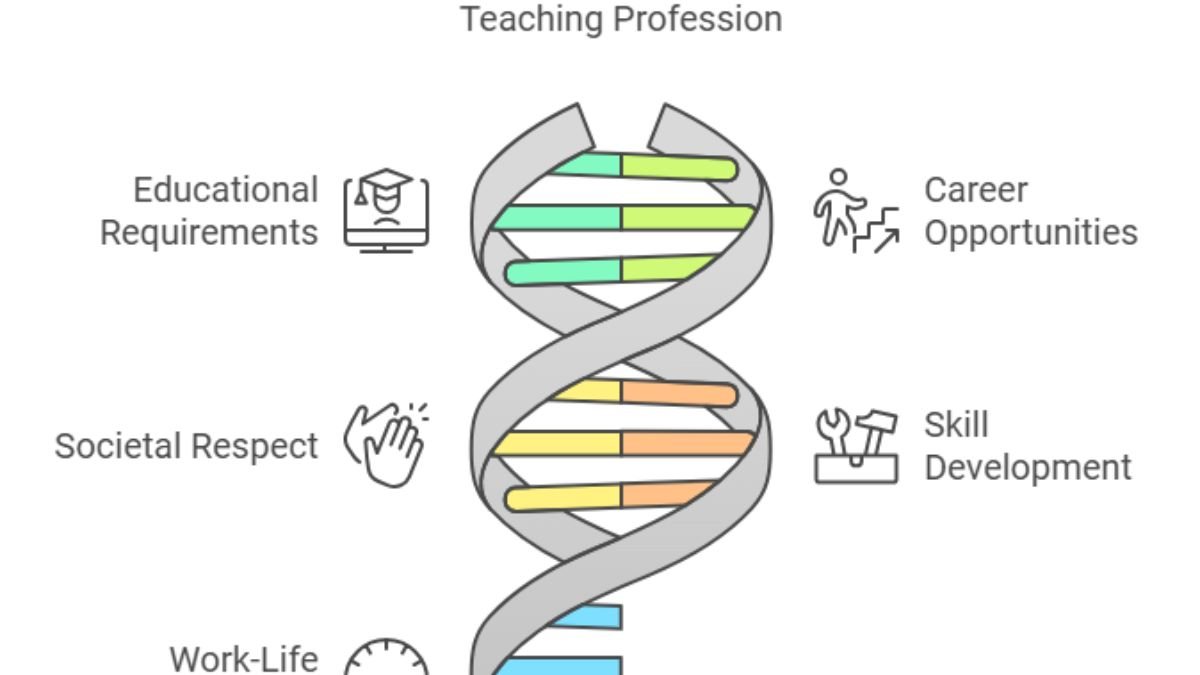Teaching today is not just a profession but has become an important medium of service and building the society. In such a situation, doing B.Ed (Bachelor of Education) is the right option for every student who wants to become a successful teacher in the future. But while doing B.Ed, an important question arises – which specialization should be chosen so that the career can move in the right direction?
This question is also important because today in the field of education, only a general teaching degree is not enough, but mastering a particular subject (Specialization) can give your career more heights.
In this article, we will understand in detail how to choose the ideal specialization for B.Ed, which factors are important to keep in mind and which options can be the best according to your future.
Why is specialization needed in B.Ed?
Many students believe that B.Ed only means a degree to become a teacher, but the truth is that specialization decides the track of your career.
Choosing the right specialization gives you in-depth knowledge of the same subject.
- It provides you better job opportunities.
- Your demand in school, college or university is decided on that basis.
If you want to prepare for a government job (like TGT, PGT or lecturer), then the subject selection proves to be decisive.
Identify your interest and aptitude
The first and most important step is to understand your interest and aptitude.
- If you like solving mathematics, then Maths specialization is better.
- If you are interested in literature and language, then choosing Hindi, English or any other language will be right.
- Physics, Chemistry or Biology can be the best options for students who are fond of science and experimental subjects.
If you are good at understanding society and children’s psychology, then Social Studies or Psychology will prove to be suitable.
Remember, it is not right to choose a subject only by looking at the job prospects. Only those who choose subjects according to their liking and interest can be successful in the long run.
Focus on future career prospects
While choosing a specialization, it is also important to see how much demand there is for that subject in the future.
- There is always a high demand for Maths and Science teachers, especially in government jobs.
- Language teachers (English, Hindi, Regional Languages) are also necessary for every school.
- New specializations like Computer Science and IT are becoming increasingly popular in today’s digital era.
Subjects related to Arts and Social Sciences can also be beneficial in competitive exams and higher education.
Look at the available resources and institute
Not every institute offers B.Ed specialization in every subject. Therefore, it is important to see which subjects are available in your college or university.
Also, before choosing a subject, also check whether:
- There is qualified and experienced faculty for that subject or not.
- Whether labs, libraries and research resources are available or not.
- Whether workshops and training related to that specialization are conducted or not.
Keep in mind the preparation for competitive exams
If you dream of a government teacher’s job after B.Ed, then your specialization should directly match the subject included in that exam.
- Your selected subject will be the main one in CTET, UPTET, REET or other state level TET exams.
- Your specialization subject is mandatory for jobs like PGT and TGT.
- In exams like UGC-NET and JRF, it also matters in which subject you have done specialization.
Popular B.Ed specialization options
There are many types of specializations available during B.Ed in India. Let’s see some major options:
- Mathematics – Best for calculations and logical thinking.
- Science (Physics, Chemistry, Biology) – For experimental and research-based careers.
- Languages (English, Hindi, Sanskrit, Regional Languages) – For those interested in literature and communication skills.
- Social Studies (Social Studies, History, Geography, Political Science) – For those with sociology and administrative thinking.
- Computer Science and IT – Demand is increasing in the modern digital education system.
- Special Education – For those making career in Divyang children and inclusive education.
- Educational Psychology – For those interested in understanding the mindset of children and counseling.
Look at the changing trends of industry and technology
Today education is not limited to blackboards and books. E-learning, smart classes and digital platforms have changed the whole picture.
So if you want to make your career secure for the future, then choose such a specialization which will remain relevant in the coming years.
- Computer Science and IT
- Digital Education and E-Learning
- Special Education
- Psychology and Counselling
Seek guidance and advice
Sometimes students choose subjects based on the advice of friends or family without thinking deeply. This is not right.
- Take advice from your seniors, professors or counsellors.
- Listen to real-life career experiences from experts in that field.
- Research about job opportunities and growth prospects.
Backup plan is also important
Suppose you did specialisation in a subject, but later on the job prospects in that field turned out to be less. In such a situation, you should have a backup plan.
For example:
- If you have chosen English, then you can choose content based research.
- If your specialization is computer science, you can also get opportunities in the IT industry.
Conclusion
Choosing a specialization in B.Ed is not just a formal decision, but it affects your entire career.
- Identify your interests and strengths.
- Assess future demand and opportunities.
- Choose the right institute and resources.
- Keep competitive exams and career growth in mind.
